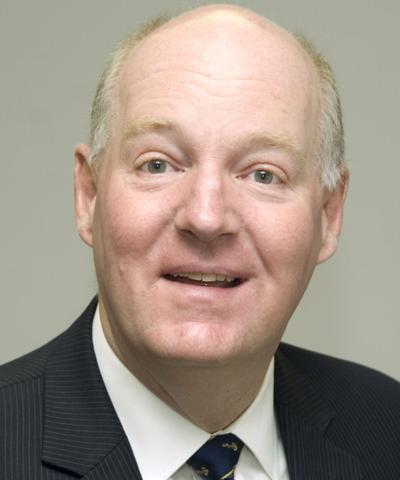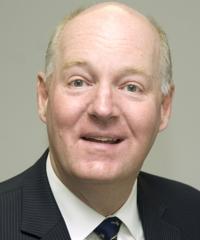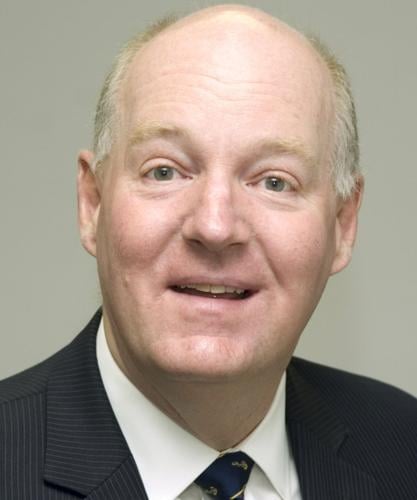Just like those 17-year cicadas I wrote about two weeks ago, we in Northern Virginia are starting to emerge from our own year of semi-hibernation.
Cicadas do it naturally. They like living 18 inches or so below ground before emerging into the daylight after almost two decades. We humans don’t do things that way. It’s not our nature. We’re what anthropologists call “social animals,” and becoming suddenly homebound, fearful of spreading or getting COVID-19, and having our lives turned upside down has been traumatic. So, here are some questions and a little advice.
I teach at Virginia Commonwealth University in Richmond. I know online classes were becoming the wave of the future in education before the pandemic, but after a year of teaching online, I miss my students. I think they may even miss me.
Zoom – the teaching and meeting application – is amazing, but it’s like trying to conduct class over two-way radio at sea. Only with pictures. Yes, there is a degree of camaraderie and it does work, but it’s difficult to tell who is listening, and it’s clear the students haven’t dressed up to go anywhere in weeks. The guys all seem to have beards, too. Very 1970s.
Our conversational skills have probably suffered, too, and we may find that out when we go back to work or school. Again, I think of my students. They socialize a bit but, but generally don’t see other people that much. And asking a girl for a date is often awkward enough to start with. Rusty social skills aren’t going to make that any easier.
Then there are public schools. For most students, the pandemic has been an unwelcome and unpleasant pause in their academic and social development.
However, I know one young man who didn’t get along that well at high school and had fair to poor grades. Since the pandemic started, he’s become an A student, and he seems happier. It was almost like turning on a light bulb. There is clearly a lesson there. Maybe one style of delivering a secondary education doesn’t fit all.
The media is enamored with the notion of “no more office.” To which, one expert on the workplace said, “don’t get carried away.”
Yes, it’s nice to work at home, but work is about relationships. It’s about chats over coffee and informal interaction. If someone needs help, going over to their desk creates a bond that texting can’t.
Also, there is the dark side to remote work – something I notice people don’t want to talk about. We build bonds with our employers and employees. If an employer has to let someone go, the person they see regularly, and relate to cordially, will have an edge in that decision.
Now here is a question: Has anyone missed their commute? OK, I see a few hands. Carpools, the Virginia Railway Express, Omniride, and even Metro (though that’s kind of a stretch), are fun for some people. I loved riding the VRE. Commuters have time to decompress on the way home and make friends. A few adorable romances have even blossomed on VRE.
So, like powering up an old ship with dozens of systems – some in good shape, some not, and most you’re switching on with your fingers crossed – we’re emerging.
It’s not going to be easy. Why? Because we are used to being at home. We would like to return to the way things were, but we’re scared of a sudden return to normal. Besides, what does normal look like? And there are a lot of questions. What was the name of the vanpool contact? Will my boss still let me work two or three days at home? What’s it like to sit down with other office workers and students and have lunch? Have my social skills suffered? Will it be awkward?
A common suggestion, which I support, is to realize we aren’t cicadas. This wasn’t normal. The last year has been depressing, upsetting and traumatic. Re-emerge slowly if you can. Don’t expect an in-depth personal discussion the first time you see a friend after 14 months. Say you’re glad to see them, ask gentle questions, and reestablish your common ground.
So much has changed. Our routines have been disrupted. And who knows what the future holds. How much have we changed? Will we want to be closer to family and friends? I hope so. Will we go to malls, restaurants and movie theaters like we did before COVID? Will we travel like we used to? What is the long-term future of how we provide education to our children?
Good questions – and don’t expect quick or immediate answers. Rather, “take it slow,” and we’ll find out together.
David Kerr is an adjunct professor of political science at Virginia Commonwealth University and has worked on Capitol Hill and for various federal agencies for many years.




(0) comments
Welcome to the discussion.
Log In
Keep it Clean. Please avoid obscene, vulgar, lewd, racist or sexually-oriented language.
PLEASE TURN OFF YOUR CAPS LOCK.
Don't Threaten. Threats of harming another person will not be tolerated.
Be Truthful. Don't knowingly lie about anyone or anything.
Be Nice. No racism, sexism or any sort of -ism that is degrading to another person.
Be Proactive. Use the 'Report' link on each comment to let us know of abusive posts.
Share with Us. We'd love to hear eyewitness accounts, the history behind an article.